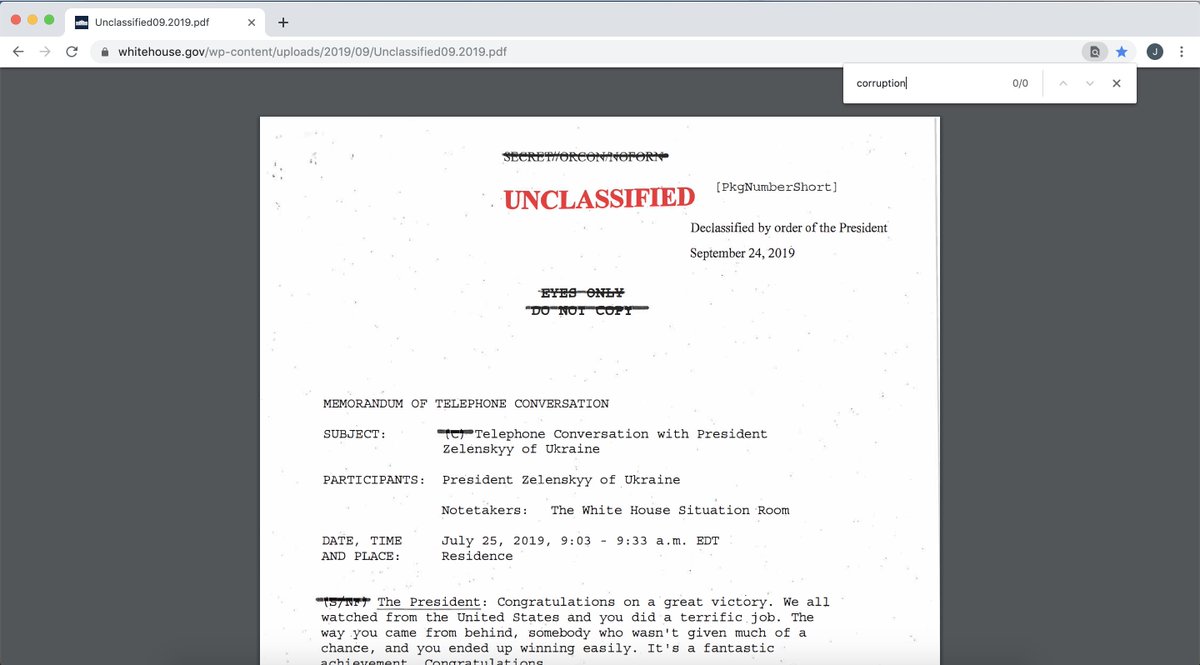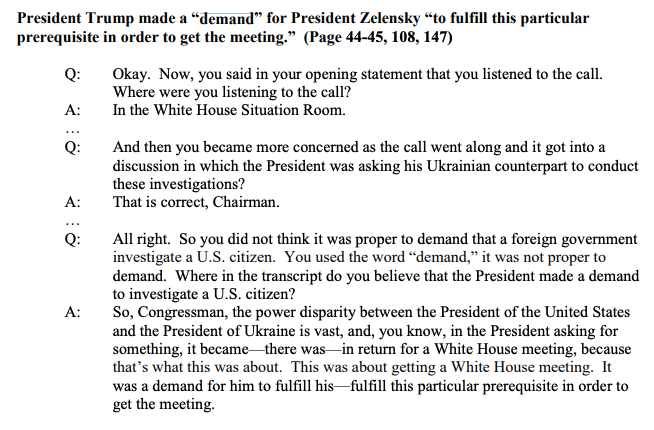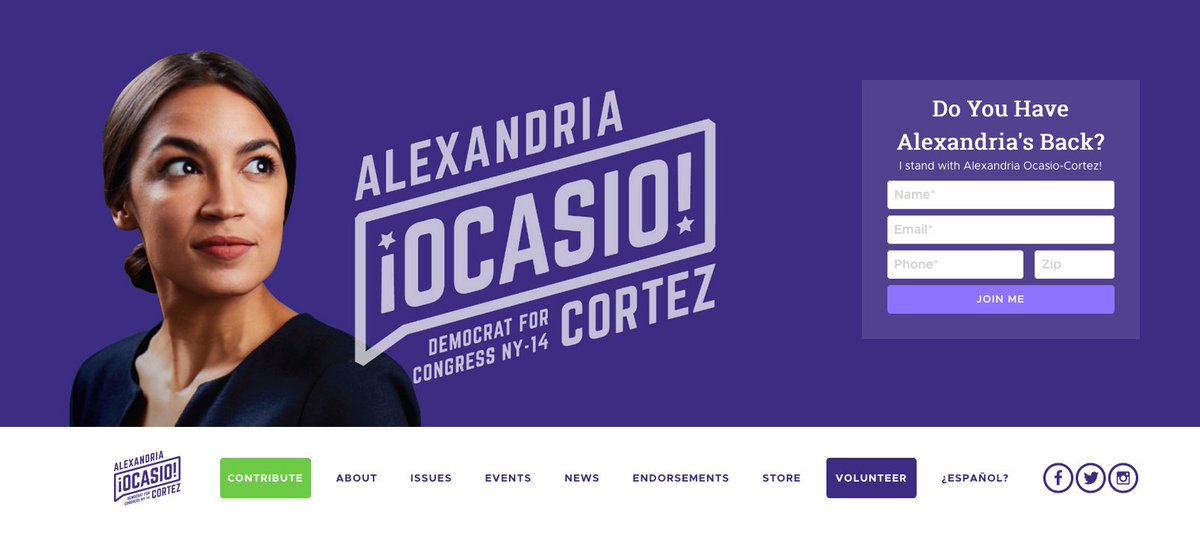c-span.org/video/?466134-…
-@RepAdamSchiff
They don't want transparency—they just want the hearings to stop before the public can learn more about Trump's abuses of power.
That blows up the GOP talking point that Trump releasing the aid means there was no extortion.
themoscowproject.org/dispatch/debun…
A:No Mr. Goldman, I have not.
-Ukraine understood aid was being withheld.
-They understood announcing an investigation would free up the aid.
-Zelensky was preparing to go on CNN to announce the interviews.
That's extortion.
We put those messages in context here: themoscowproject.org/dispatch/timel…
A: None whatsoever.
Q: When Vice President Biden acted in Ukraine, did he act in accordance with official U.S. Policy?
A: He did.
That's only because public pressure forced Trump to release it—and even that was after almost two months of holding the aid back.
themoscowproject.org/dispatch/debun…
Artemenko was personally working with Felix Sater and Michael Cohen to transmit a pro-Russia peace plan for Crimea during the 2016-2017 transition. nytimes.com/2017/02/19/us/…
Many of those conspiracy theories traces back to—surprise, surprise—Russia, which was desperate to deflect blame after 2016.
themoscowproject.org/dispatch/trump…
Apparently he missed when Kent debunked those very claims less than an hour ago:
Trump didn't mention corruption. He didn't mention oligarchs.
He mentioned the Bidens and CrowdStrike (aka, 2016 election).
Zelensky was all set to meet Trump's demands in exchange for military aid when public pressure forced Trump to relent. themoscowproject.org/dispatch/debun…
It certainly doesn't look anything like Trump's extortion scheme.
Trump's was an effort to "aim corruption in Ukraine at Vice President Biden and at the 2020 election."
Kent: "That was not an anti-corruption statement"—especially with Giuliani demanding it reference "Biden, Burisma, and 2016."
They wouldn't argue that with any other crime—so why are they apparently ok with Trump's attempted extortion?
A: I believe he was looking to dig up political dirt against a potential rival in the next election cycle.
Q: Ambassador Taylor? What interest do you believe he was promoting?
A: I agree.
So why does being president insulate him from those consequences?










